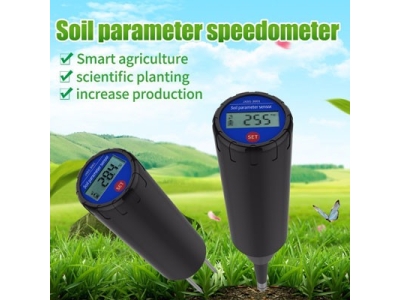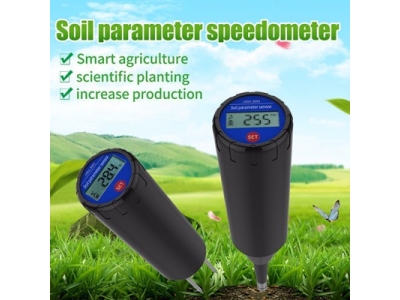In recent years, the agricultural industry has witnessed a significant transformation with the advent of advanced technologies. One such groundbreaking innovation that is revolutionizing farming practices is the use of advanced soil pH sensor solutions. These cutting-edge devices are changing the way farmers monitor and manage soil conditions, ultimately leading to improved crop yields, sustainable farming practices, and enhanced environmental stewardship. This article explores the role of advanced soil pH sensor solutions in modern agriculture and highlights the benefits they bring to farmers around the world.

The Importance of Soil pH in Agriculture:
Before delving into the impact of advanced soil pH sensor solutions, it is essential to understand the significance of soil pH in agriculture. Soil pH, which measures the acidity or alkalinity of the soil, plays a crucial role in determining nutrient availability, microbial activity, and overall plant health. Different crops thrive in specific pH ranges, and maintaining optimal soil pH levels is key to maximizing crop productivity and quality.
Challenges Faced by Farmers:
Traditionally, farmers have relied on manual methods or periodic soil testing to assess soil pH levels. However, these methods are often time-consuming, labor-intensive, and may not provide real-time data on soil conditions. As a result, farmers may struggle to make informed decisions regarding fertilization, irrigation, and other agronomic practices, leading to suboptimal crop yields and resource wastage.
Enter Advanced Soil pH Sensor Solutions:
Advanced soil pH sensor solutions offer a game-changing alternative to traditional soil testing methods. These automated devices are equipped with cutting-edge technology that allows for continuous monitoring of soil pH levels in real time. By installing soil pH sensors in the field, farmers can access up-to-date data on soil conditions, enabling them to make timely and precise adjustments to their farming practices.
Benefits of Advanced Soil pH Sensor Solutions:
The adoption of advanced soil pH sensor solutions brings a myriad of benefits to farmers and the agricultural industry as a whole. One of the primary advantages is enhanced precision in nutrient management. By accurately measuring soil pH levels, farmers can tailor their fertilizer applications to meet the specific needs of their crops, reducing waste and optimizing nutrient uptake. This targeted approach not only improves crop yield but also minimizes environmental impact by preventing nutrient runoff and leaching.
Moreover, advanced soil pH sensor solutions contribute to resource efficiency by enabling farmers to optimize irrigation practices. By tracking soil moisture levels in conjunction with pH data, farmers can implement precise irrigation schedules, ensuring that crops receive the right amount of water at the right time. This not only conserves water resources but also promotes water-use efficiency and reduces the risk of overwatering or underwatering, which can lead to crop stress and yield loss.
Furthermore, the continuous monitoring capabilities of advanced soil pH sensor solutions empower farmers to detect and address soil pH fluctuations promptly. This proactive approach allows farmers to identify potential issues such as soil acidification or alkalization early on and take corrective measures before they impact crop health.






